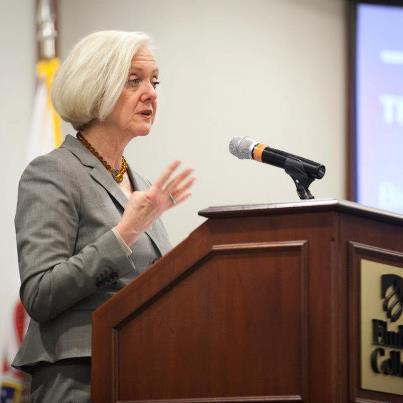The question of what happens to Obamacare may be a purely political one. Yet there is no doubt that this is a debate about morality. At one level, this is an easy debate for Catholic moral theology, since it is clear that health care is a right. But at another level, there are two more complicated debates that I’d like to raise, rather than resolve. Because these play out in the background, not the foreground, we are frustratingly dishonest about what is going on here. This is an exercise in commons management in an age where we have no politics capable of handling a commons.
One complicated debate is about responsibility. The most recent iteration of “repeal and replace” saw Freedom Caucus conservatives press to eliminate the “essential services” and the “community rating” provisions of Obamacare. Ostensibly, this is about choice. But these arguments are in fact about responsibility. As this piece at Vox indicates, some Republicans are finally stating openly that some people should pay more for health care because they haven’t taken care of themselves. The Vox author, from a family where he and his brother were faced with debilitiating chronic diseases from a very young age, understandably bristles at this idea that sick people should be held responsible for being ill.
I didn’t do anything to get ulcerative colitis. I did nothing wrong. I eat a well-balanced diet. My weight is good. I exercise five times or so a week. I don’t smoke or do drugs. I don’t drink more than socially. I do everything I’m supposed to do. I take drug that costs about $80 every three months and requires me to take complex tests regularly. I try to limit my stress and anxiety. I have a colonoscopy every few years. I’m doing the things I need to do to keep my body healthy. I lead a good life. I still have ulcerative colitis, though, and I will until I die, likely.
But here is a case of people arguing past one another. The author grants that:
There is certainly a case to be made that people have some responsibility for their health. But the lines aren’t clear at all. It’s easy to point at smokers and say they’re doing something harmful and are raising costs for all of us. That’s why we can charge smokers more under the ACA. After that … it gets dicey. Do you start regulating what people eat? What they drink? If you eat dessert and I don’t, why should I have to pay for your health care? Should we charge people more if they drive cars, which is the number one killer of children? I like to ski. That has risks. So does rock climbing. Or playing contact sports. Should we make them stop, or charge them more?
C’mon. You go from smoking (how much smoking? Pot smoking?) to “regulating what people eat”? It’s not that dicey. What about type II diabetes? What about injuries that are due to carelessness? Yes, what about extreme sports? There are ways around this. Tax extreme sports. Help people manage diet and exercise. But simply denying the responsibility issue is just the mirror image of the idea that people are fully individually responsible. The issue is how to sort out communal from individual responsibility, not to polarize the debate between two unrealistic extremes. The two are in fact intertwined.
The other complicated debate is about what should count as health care. The medical and pharmaceutical industries are no doubt very, very interested in diagnosing any kind of illness when people think they can get treatment for it “for free.” Who has oversight of this? Who finally gets to blow the whistle, for example, on the overmedication of children? Again, the point is not to deny people care, but to be forthright about the fact that there needs to be reasonable communal standards about care that are not unduly influenced by those profiting from the care.
The health care debate is becoming an example of our inability to manage what is in fact a commons in the midst of debates stuck in the market-state binary.






It may be simply that some wish to take money from sick people and give it to rich people. Repealing ObamaCare and the coming tax reform are two pieces of single strategy. First we save a lot of money by reducing care to the sick, and then we give that money to the rich in the form of lower tax rates.